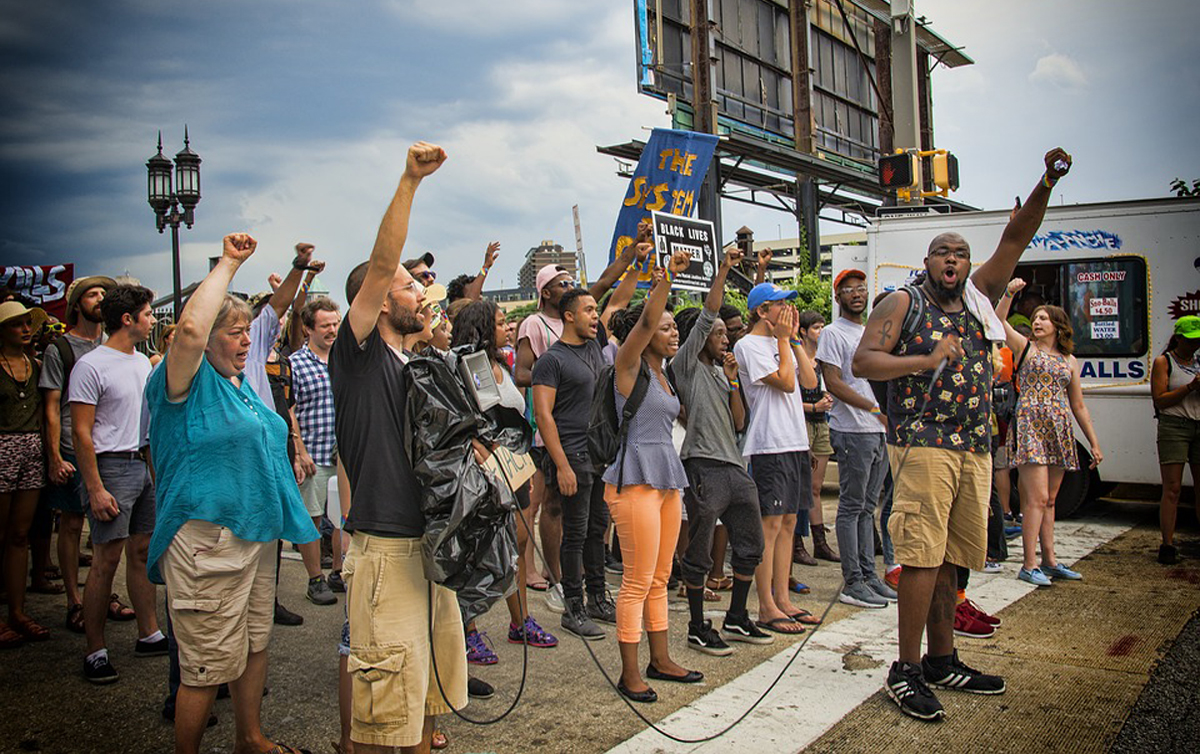By Nicole Butler
This is a new column about grassroots politics, and before I could type this sentence, I had to look up what that actually means. Grassroots political movements, it turns out, start from the ground up. It’s many people from a certain area getting together and getting involved in their community leadership.
Other foggy definitions I’ve solidified this year include municipal (city or local), gerrymandering (the process by which the party in power draws district boundaries to benefit themselves), and progressive (it’s complicated, but basically we value ultimate fairness to everyone involved in the flawed system of capitalism). How exactly does someone with an advanced degree in English manage to be ignorant of “grassroots” and other key political terms?
Privilege.
I’m 34 years old and just waking up to the truth that our country is historically and systematically unfair to enormous groups of people (clearly not me) and has no intention of changing without utter revolution. It’s going to take a mass of people across the United States getting involved locally, starting with shaping municipal politics, then moving to regional and state positions, then to national, to effect the kind of change that will approach fairness for all Americans.
Getting involved intimidated me at first, but I had a catalyst: utter rage at the election of Donald Trump by my fellow white Americans, especially the 53 percent of white women who voted (to the rest of you who didn’t vote, might I suggest you start there?). That was enough to finally make me get my hands dirty. Take a look at what bothers you — is it local poverty? The environment? Medical marijuana? Education? One thing is enough. Even in a place as notoriously complacent as Utah, there are groups across the state working on all of these issues (and more). You can always find a cause to join.
If you’re more the DIY type, you can create your own ways to shift attitudes and policies without joining a group. To have a positive impact on the environment, you can start your own carpooling Facebook group for people who work in your metropolitan area. You can volunteer at a local elementary and spend time with struggling readers. You can create clothing drives, food drives, or knitting circles to donate to human trafficking rescue orgs. When I couldn’t find a single progressive organization in my community, including a noticeable presence from the Democratic Party, I created one. I managed to find one closet liberal who knew another closet liberal, and eventually almost two dozen of us came crawling out from our homes and started meeting (even advertising!) publicly, fear of ostracization be damned. Thanks to social media, you can turn almost any idea for involvement in your community into action — alone or with other baby activists. Find a reason, find an action, and get moving.
Finally, it’s important to address a certain stigma I see when talking to strangers or even teaching groups of young college kids here in Utah. A lot of people seem to think that getting involved, speaking out, and taking a public stand for or against something are somehow uncouth. Like it’s tacky to have an opinion, and God save you if that opinion goes against the state’s leadership. Even those who privately disagree with decisions made by our state government are reticent to say anything out loud, let alone publicly. And even in hushed tones between friends, the criticism is couched in overly ambiguous “both sides” and “get along” terms, adding nothing of value to problems that need solving. I have no idea how this pervasive disdain for getting down into the dirt of politics developed, but it only takes one federal law, one municipal policy, or one elected official/majority to change your life in dramatic or irreversible ways (insert any Dreamer you know here). You shouldn’t hand over the power of making your life decisions to some elected official you’re not even voting for, following, or holding accountable. No matter how comfortable your life is, some future law could have a huge impact on it, and you could be blindsided by it if you habitually stay home and stay out. That’s reason enough to drop the “get along” attitude and go out to fight for what you know is right.
In future columns, we’ll look at multiple ways to get involved. Very few superactivists can do it all, but everyone can do a little. I’ll help you find something you can do, stick to, and hopefully even enjoy.
One word of warning: You’re gonna have to get a little dirty. But like anything that requires a bit of sweat, grit, and frustration, you’ll be stronger for it. So will your community.
Articles related to “The importance and basics of grassroots politics”
Letter to the Editor: Citizens’ Climate Lobby encourages ethical tragedy
The end of civility: Facebook and other social media bring out the worst in everyone




